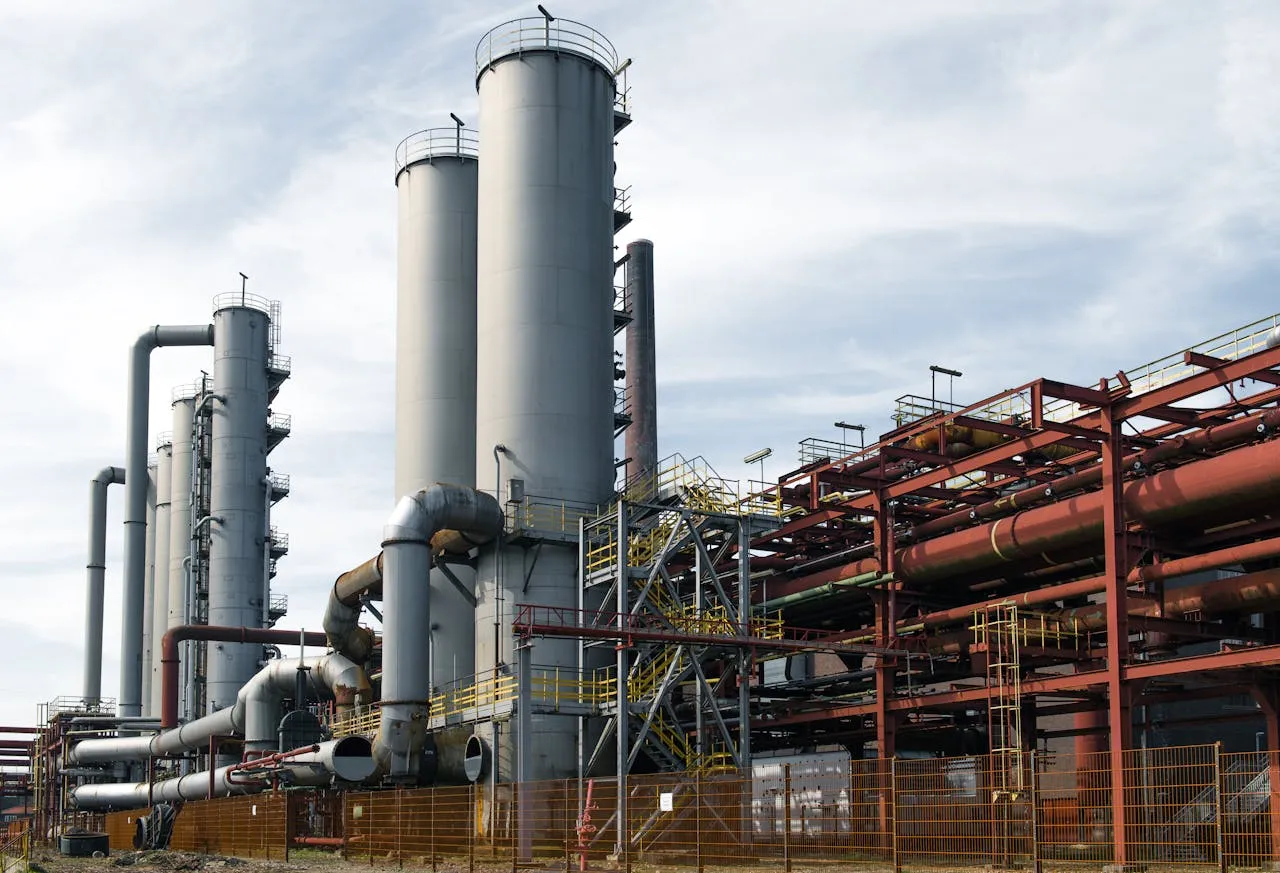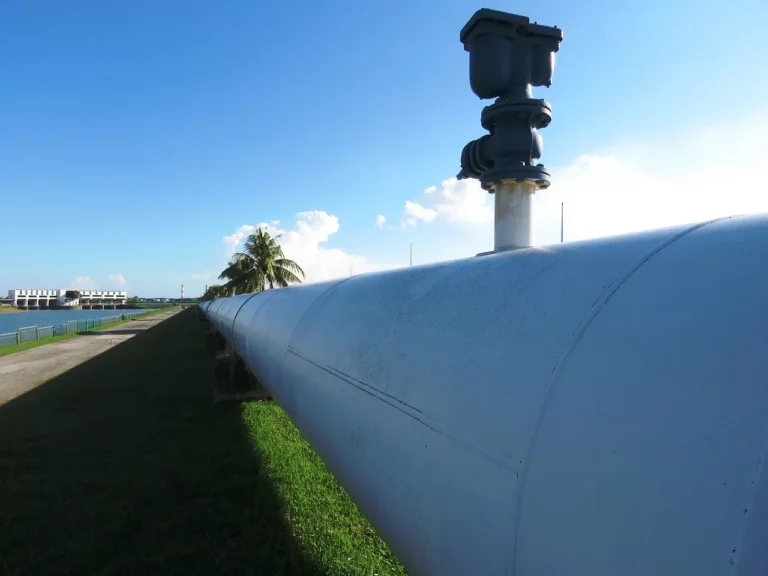
SJI and OPAL Fuels Celebrate Launch of Atlantic County Utilities Authority Renewable Natural Gas Project
SJI, a leading energy infrastructure holding company, and OPAL Fuels, a recognized leader in the production, marketing, and distribution of renewable and compressed natural gas (RNG and CNG), recently celebrated the ribbon-cutting of the Atlantic County Utilities Authority’s (ACUA) Renewable Natural Gas (RNG) Project in Egg Harbor Township, New Jersey. This landmark event marks a major step forward in the transition to cleaner, lower-carbon energy solutions in the region.
The ACUA RNG project is designed to capture landfill gas—primarily methane—from the county’s solid waste landfill and process it into high-quality renewable natural gas. This RNG serves as a renewable, low-carbon alternative to conventional diesel and natural gas, enabling both environmental benefits and the production of a locally sourced energy resource. By converting landfill gas into a valuable fuel, the project reduces harmful emissions, supports sustainable energy goals, and promotes innovation in renewable energy infrastructure.
For SJI, this project represents a significant milestone. It is the first initiative that will deliver RNG directly into the pipeline system of South Jersey Gas, a wholly owned subsidiary of SJI. This means that, for the first time, homes and businesses within the South Jersey Gas service territory will have access to renewable natural gas alongside their traditional natural gas supply. The ribbon-cutting ceremony attracted a wide array of stakeholders, including local and state elected officials, company leadership, and community members, reflecting the broad support and importance of the project.
Chet Benham, President of SJI Renewable Energy Ventures, commented on the significance of the project: “We are thrilled to cut the ribbon on this facility, which represents another important milestone for SJI. It highlights our ongoing commitment to innovation and renewable energy solutions, while demonstrating our dedication to creating sustainable infrastructure that benefits both our customers and the environment.”
The RNG produced at the ACUA facility is planned for dual use: it will serve as a transportation fuel and will be directly injected into the South Jersey Gas pipelines. This dual application expands the reach of renewable natural gas across multiple sectors, allowing residential, commercial, and industrial users to access a cleaner, lower-carbon energy source for heating, cooking, and vehicle fuel. By integrating RNG into the pipeline system, SJI is taking a proactive step in decarbonizing energy delivery while supporting regional energy sustainability goals.
The ACUA facility is expected to operate with a nameplate capacity of 2,500 standard cubic feet per minute (SCFM) of landfill gas, translating into an estimated annual production of more than 650,000 MMBtu of RNG. This is roughly equivalent to 4.6 million gallons of natural gas per year, representing a substantial contribution to regional renewable energy supplies. The facility’s output not only provides energy but also significantly mitigates environmental impacts by capturing and repurposing methane that would otherwise contribute to greenhouse gas emissions.
ACUA President Matthew DeNafo emphasized the Authority’s ongoing commitment to environmental stewardship and technological innovation: “ACUA has consistently demonstrated its dedication to exploring and implementing technologies that transform waste into a resource and improve our environment. The RNG project embodies that commitment, and we are proud to celebrate its opening alongside our valued partners, OPAL Fuels and SJI.”
In addition to producing renewable fuel, the ACUA RNG project is projected to make a meaningful environmental impact by reducing methane emissions at the landfill. Methane is a potent greenhouse gas, and capturing it for use as RNG prevents it from entering the atmosphere. Estimates suggest that the project could avoid over 346,000 metric tons of carbon dioxide equivalents per year, contributing significantly to regional and national climate mitigation efforts.
Adam Comora, Co-Chief Executive Officer of OPAL Fuels, underscored the strategic importance of the project for both environmental and economic goals: “The opening of this facility marks an important milestone in OPAL Fuels’ mission of turning waste into clean, domestic energy. This project reduces emissions, improves local air quality, creates jobs, and strengthens American energy independence. It is an example of how landfills can generate financial value while cutting methane emissions and displacing diesel fuel in transportation, ultimately helping to decarbonize multiple sectors of the economy.”
The RNG production process at the facility involves capturing landfill gas and processing it to remove impurities, producing a high-quality natural gas equivalent suitable for injection into pipelines or use as a transportation fuel. By reducing the volume of methane gas that would otherwise be combusted or released at the landfill, the project contributes to lowering on-site emissions and improving air quality in surrounding communities.
This project also represents the first collaboration between SJI and OPAL Fuels under their previously announced 50/50 joint venture, which aims to develop, construct, own, and operate RNG facilities across the United States. By combining SJI’s energy infrastructure expertise with OPAL Fuels’ technical leadership in RNG production and distribution, the joint venture is positioned to drive growth in the renewable natural gas sector while delivering measurable environmental and economic benefits.
In addition to the environmental advantages, the ACUA RNG project provides broader community and economic benefits. It generates local employment opportunities during both construction and operational phases, strengthens regional energy security by producing domestically sourced fuel, and supports New Jersey’s renewable energy targets. The project exemplifies a scalable model for other communities seeking to convert landfill gas into renewable energy, illustrating the potential for landfills to become critical contributors to a clean energy economy.
The success of this project reflects the growing role of renewable natural gas in the transition to sustainable energy systems. By leveraging existing infrastructure and innovative technologies, RNG projects such as this demonstrate how renewable energy solutions can be integrated into conventional energy systems, providing cleaner fuel options while reducing greenhouse gas emissions.
As the ACUA RNG facility becomes fully operational, it is expected to serve as a benchmark for future RNG projects across the region and nationally. Its combination of environmental stewardship, economic development, and renewable energy innovation exemplifies the potential for partnerships between public utilities, private energy companies, and community stakeholders to advance the clean energy transition.
With the ribbon officially cut and operations underway, the ACUA RNG project sets a precedent for turning waste into a valuable, sustainable energy resource, while simultaneously fostering a cleaner environment, supporting local communities, and advancing regional renewable energy goals. SJI and OPAL Fuels’ continued collaboration promises to expand the availability and impact of renewable natural gas, demonstrating the power of innovative energy solutions to meet today’s environmental and economic challenges.







